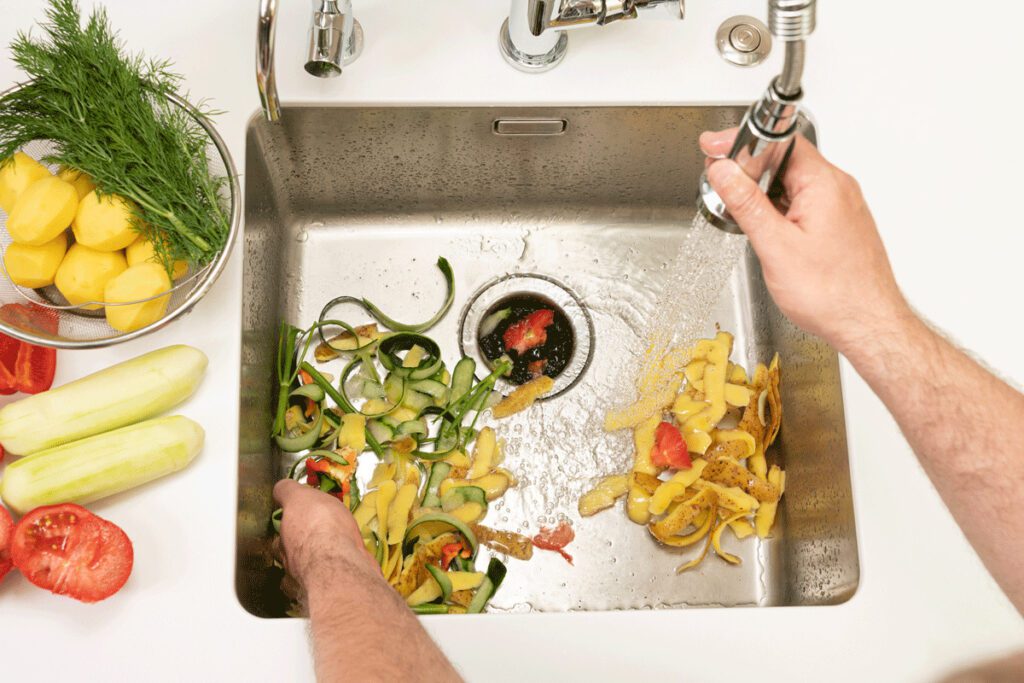
✅ Quick Tips for Everyday Use
- Only grind food scraps, this is after you’ve scraped the plate, etc, into the trash. Big chunks can jam the motor; fibrous stuff like celery, asparagus, onion skins, and banana peels can tangle up and clog things.
- Run cold water before, during, and for 10–15 seconds after grinding. Cold water keeps grease solid so it gets chopped up—not stuck in the pipes.
🚫 What NOT to Put Down
- No fats, oils, or grease—they solidify and slowly clog pipes.
- Avoid coffee grounds, eggshells, seeds, bones, or pasta/rice—they cause build-up or sticky sludge.
- Never toss in non-food items—no plastic, glass, paper, utensils or tobacco croppings.
🧼 Keep It Clean & Fresh
- Monthly cleaning: Smash a handful of ice cubes (plus a scoop of baking soda or a bit of lemon) in the disposal with cold water. This helps clean and sharpen the grinding surfaces.
- Deodorize: Grind citrus peels occasionally and in small pieces—or try pouring a little antibacterial mouthwash down the drain for a minty fresh scent between cleanings.
- Deep maintenance: Every few months, clean under the splash guard (the rubber flange). Some folks avoid odor issues this way. Consider eco‑friendly enzymatic drain cleaners for an overnight treatment if allowed.
🛠 Safe Troubleshooting
- If the disposal hums but doesn’t grind, cut the power first (unplug or breaker off), then try using the reset button or a small Allen wrench (that may have come with it) located on the bottom of the disposal.
- Never put your hand inside—always use pliers or a wooden spoon after turning the power off.
- If issues persist, notify your landlord or maintenance right away.
How to Use Your Garbage Disposal Like a Pro
